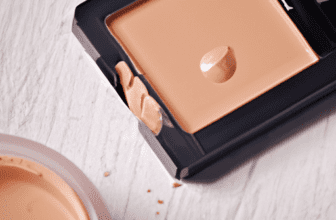Skincare Routines for Different Skin Types
-
Table of Contents
- Skincare Routines for Different Skin Types
- Key Takeaways
- Introduction: The Importance of Personalized Skincare
- Understanding Your Skin Type
- Skincare Routines for Different Skin Types
- Normal Skin
- Dry Skin
- Oily Skin
- Combination Skin
- Sensitive Skin
- FAQ Section
- 1. How do I determine my skin type?
- 2. How often should I change my skincare routine?
- 3. Can I use the same skincare products year-round?
- 4. How long does it take to see results from a skincare routine?
- 5. Can I mix and match products from different brands?
- Conclusion: The Power of Personalized Skincare
- Key Takeaways Revisited
Skincare Routines for Different Skin Types

[youtubomatic_search]
Key Takeaways
- Understanding your skin type is crucial for effective skincare.
- Different skin types require different skincare routines.
- Cleansing, treatments, moisturizing, and sun protection are essential steps in any skincare routine.
- Skincare products should be chosen based on your skin type.
- Consistency is key in maintaining a healthy skincare routine.
Introduction: The Importance of Personalized Skincare
Skincare is not a one-size-fits-all solution. What works for one person may not work for another due to the unique nature of our skin. Understanding your skin type and its specific needs is the first step towards achieving a healthy, glowing complexion. This article will delve into the different skin types and provide a comprehensive guide on how to tailor your skincare routine accordingly.
Understanding Your Skin Type
There are generally five skin types: normal, dry, oily, combination, and sensitive. Normal skin is well-balanced and not too dry or oily. Dry skin lacks the necessary lipids to retain moisture and protect against external influences. Oily skin produces excess sebum, leading to a shiny complexion and the potential for acne. Combination skin is a mix of dry and oily, often with the T-zone being oily and the cheeks dry. Sensitive skin is prone to redness, itching, and irritation.
Skincare Routines for Different Skin Types
Each skin type requires a different approach to skincare. Here are some general guidelines:
Normal Skin
Normal skin benefits from a balanced routine that includes cleansing, toning, moisturizing, and sun protection. Regular exfoliation can also help maintain the skin’s healthy glow.
Dry Skin
Dry skin requires extra hydration. Look for moisturizers with ingredients like hyaluronic acid and glycerin, which can help lock in moisture. Avoid harsh soaps and hot water, which can strip the skin of its natural oils.
Oily Skin
Oily skin benefits from a routine that controls excess oil without stripping the skin. Use a gentle, oil-free cleanser, and don’t skip moisturizer – it can actually help regulate oil production. Sun protection is also crucial, as sun damage can stimulate oil production.
Combination Skin
Combination skin can be tricky to care for, as it requires balancing the needs of both dry and oily skin. You might need to use different products on different areas of your face. For example, a lightweight moisturizer might work best on your oily T-zone, while a richer cream is better for your dry cheeks.
Sensitive Skin
Sensitive skin needs gentle, hypoallergenic products. Avoid products with fragrances, dyes, and harsh chemicals, which can cause irritation. Always do a patch test before trying a new product.
FAQ Section
1. How do I determine my skin type?
You can determine your skin type by observing how your skin behaves throughout the day. If your skin tends to be shiny and oily, you likely have oily skin. If it feels tight and dry, you probably have dry skin. If your skin is oily in some areas and dry in others, you have combination skin. If your skin is neither too dry nor too oily, you have normal skin. If your skin is easily irritated, you have sensitive skin.
2. How often should I change my skincare routine?
Your skincare routine should be adjusted as needed, based on changes in your skin, the seasons, and your lifestyle. However, consistency is key, so it’s best not to change your routine too frequently.
3. Can I use the same skincare products year-round?
While some products can be used year-round, others might need to be switched out based on the season. For example, you might need a heavier moisturizer in the winter and a lighter one in the summer.
4. How long does it take to see results from a skincare routine?
It typically takes about 4-6 weeks to see results from a skincare routine. However, this can vary depending on the products used and your individual skin.
5. Can I mix and match products from different brands?
Yes, you can mix and match products from different brands as long as they are suitable for your skin type and don’t contain ingredients that can react negatively with each other.
Conclusion: The Power of Personalized Skincare
Understanding your skin type and its specific needs is the key to effective skincare. By tailoring your skincare routine to your skin type, you can help maintain a healthy, glowing complexion. Remember, consistency is key, and it’s important to give your skincare routine time to work. With the right approach, you can achieve the skin of your dreams.
Key Takeaways Revisited
- Understanding your skin type is crucial for effective skincare.
- Different skin types require different skincare routines.
- Cleansing, treatments, moisturizing, and sun protection are essential steps in any skincare routine.
- Skincare products should be chosen based on your skin type.
- Consistency is key in maintaining a healthy skincare routine.
[youtubomatic_search]





